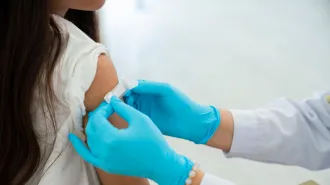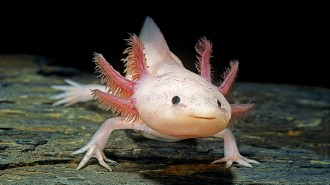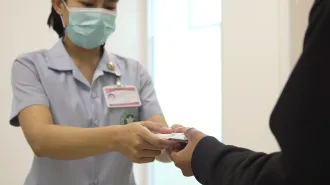Alcohol spurs cancer growth
From San Francisco, at the Experimental Biology 2006 meeting
At least in mice, downing the human equivalent of two to four alcoholic drinks per day dramatically spurs the growth of an existing cancer.
Epidemiologic studies have shown that people who regularly drink alcohol face an increased risk of certain cancers, notably breast malignancies. Last year, researchers at the University of Mississippi Medical Center in Jackson showed that alcohol spurred the development of new blood vessels to feed bone cancer cells implanted in chick embryos (SN: 1/15/05, p. 37: Available to subscribers at Not to Your Health: New mechanism proposed for alcohol-related tumors).
The same team, led by Wei Tan, has now stimulated cancer growth by giving alcohol to animals. The researchers implanted melanoma tumors in 6-week-old mice and then administered 1 percent alcohol as drinking water to some of the rodents. The animals drank as much as they wanted for 8 hours a day. Their resulting doses of alcohol remained well below those administered in other rodent-cancer studies, says Tan.
At the end of a month, tumors in animals drinking the spiked water were twice as large as those in mice getting plain drinking water, Tan reported. Microscopic investigation showed that the tumors in alcohol-drinking animals had also experienced far greater blood vessel growth, or angiogenesis, than did tumors in alcohol-free mice. Moreover, receptors for a protein that promotes angiogenesis were 40 percent more numerous in tumors from the alcohol-drinking rodents.
Tan’s colleague Jian-Wei Gu says, “We’re not against drinking.” However, he says, for people with genetic signs of vulnerability to any kind of cancer, “our message is simple: ‘No drinking.'”







